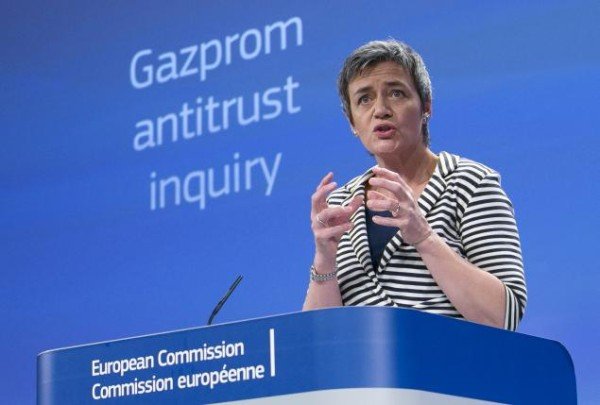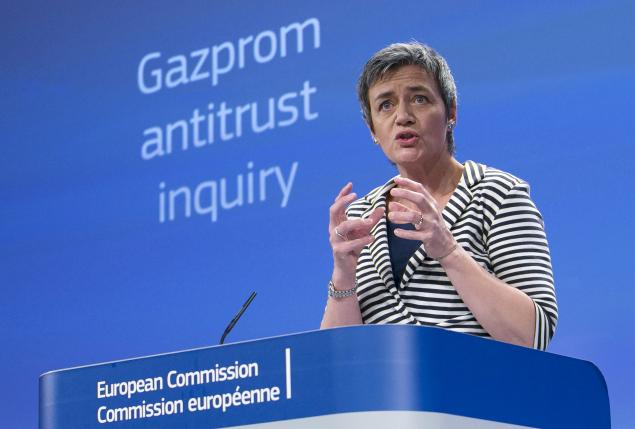Russian energy giant Gazprom has been charged by the European Commission with abusing its dominant market position in Central and Eastern European gas markets.
The EC said its preliminary view was that Gazprom was breaking EU anti-trust rules.
It added the company may have limited its customers’ ability to resell gas, potentially allowing it to charge unfair prices in some EU member states.
Gazprom rejected the EC’s objections, calling them “unfounded”.
“Gazprom strictly adheres to all the norms of international law and national legislation in the countries where the Gazprom Group conducts business,” the company said in a statement.
The company now has 12 weeks to respond to the Commission’s allegations.

The move could further sour relations with Moscow, which are already strained over the Ukraine crisis.
Brussels began investigating Russian state-controlled Gazprom in 2012, but Moscow says the Commission’s allegations are politically motivated.
The EU’s new anti-monopoly chief, Margrethe Vestager, said the Commission had found that Gazprom “may have built artificial barriers preventing gas from flowing from certain Central European countries to others, hindering cross-border competition.
“Keeping national gas markets separate also allowed Gazprom to charge prices that we, at this stage, consider to be unfair.
“If our concerns were confirmed, Gazprom would have to face the legal consequences of its behavior.”
Brussels’ competition authority has the power to impose fines of up to 10% of Gazprom’s global turnover.
The EC questioned the formulae Gazprom used to come up with the different prices at which it sold gas to individual countries.
“Gazprom’s specific price formulae, which link the price of gas to the price of oil products, seem to have largely favored Gazprom over its customers,” it said.
The Commission said that, in its preliminary view, Gazprom was hindering competition in the gas markets in eight Central and Eastern European member states – Bulgaria, the Czech Republic, Estonia, Hungary, Latvia, Lithuania, Poland and Slovakia.
Russia supplies about a third of the EU’s gas requirements, with half that amount going through pipelines that cross Ukraine.
https://www.youtube.com/watch?v=mDDmbwfEDYQ
